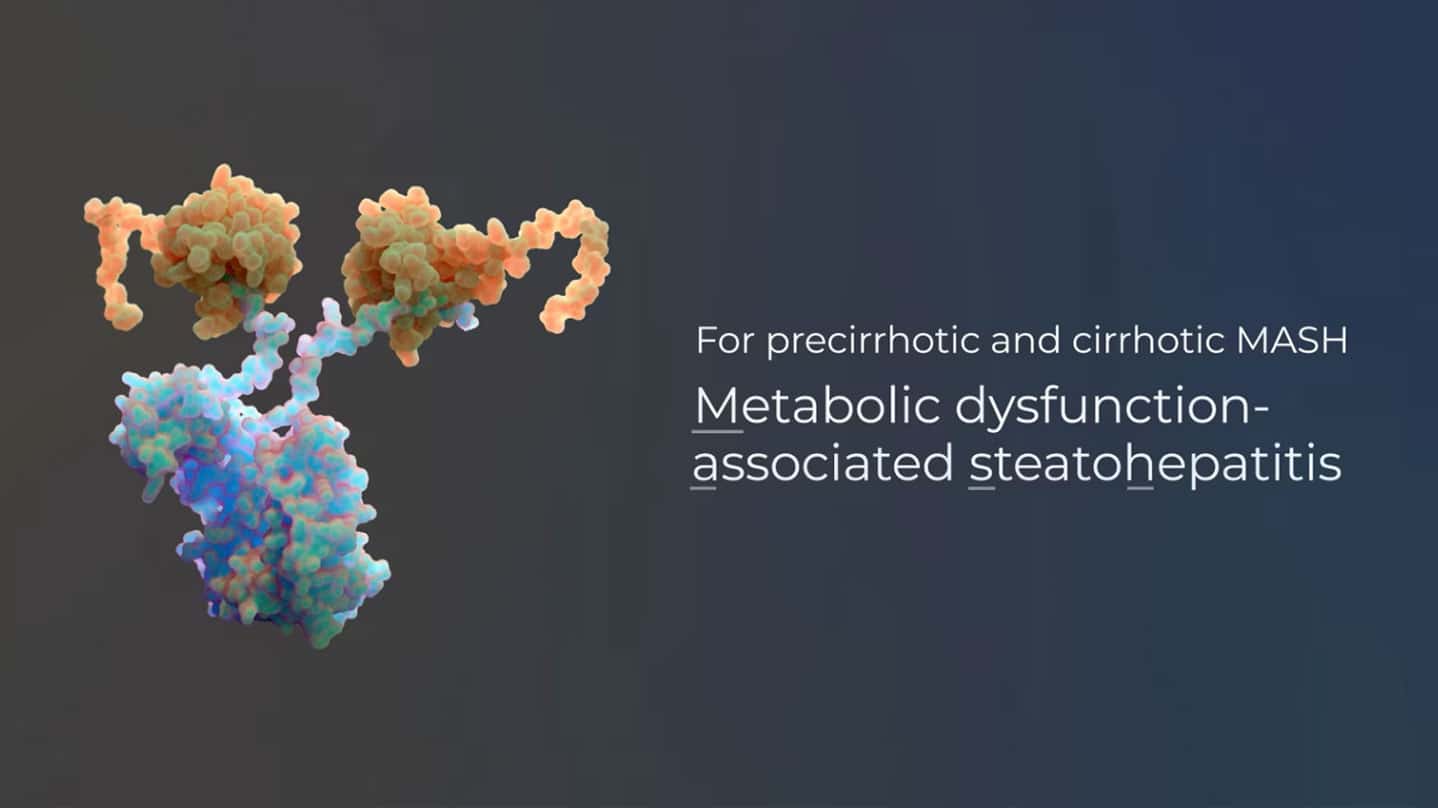We develop novel therapies to address high unmet medical need where metabolic dysregulation is a core disease driver.
Our current focus is on metabolic dysfunction-associated steatohepatitis (MASH). MASH is a severe form of metabolic dysfunction-associated steatotic liver disease (MASLD) marked by whole-body metabolic dysregulation with multiple, complex disease drivers that also increase the risk of cardiovascular disease. The disease is caused by excessive caloric overburdening in the liver, which leads to excess storage of fat in the liver, liver cell stress and injury, and inflammation, which may cause fibrosis (scarring).
Later stages of MASH, in which patients experience severe scarring (cirrhosis), are associated with increased risk of liver cancer and liver failure and can eventually lead to death.
Effective treatment of MASH requires intervention across stages of disease progression, addressing both the early-stage metabolic drivers and later-stage inflammation and fibrosis.
Akero is harnessing the natural biology of FGF21 to treat MASH holistically.
FGF21 is a natural hormone in your body that helps control blood sugar, fat metabolism, and energy balance. When your body is under stress, FGF21 protects your cells by improving how your cells produce energy, activating natural defenses against cell damage and maintaining the right balance of proteins in your cells.
Our lead program, efruxifermin (EFX), is designed to work like natural FGF21 but with improvements. EFX reduces cellular stress and helps regulate metabolism. It’s made by connecting two FGF21 molecules to a special component (called an Fc domain) that helps it stay in your body longer. The unique two-sided structure of EFX allows it to:
- Bind more effectively to its target receptors and stay attached longer
- Maintain high levels in your bloodstream
- Keep working throughout a weekly dosing schedule
By providing sustained and balanced signaling through FGF21’s receptors in both liver and fat tissue, EFX has potential to treat MASH by addressing all the main factors that make the disease worse.
Restoring metabolic balance with EFX
We believe restoring whole-body metabolic balance and acting directly, as well as indirectly, to reverse fibrosis are essential to treating MASH. Our lead program, EFX, has yielded promising data showing potential to reverse advanced fibrosis and compensated cirrhosis while also addressing the diverse drivers of MASH pathology.


